|
#4
21st May 2015, 03:38 PM
| |||
| |||
| Re: JNU Ph.D English Literature Exam Question Paper
You are looking for the JNU Ph.D English Literature Exam Question Paper. Here I am uploading a file that contains the JNU Ph.D English Literature Exam Question Paper. You can download this from here. This is as follows: JNU Ph.D English Literature Exam Question Paper 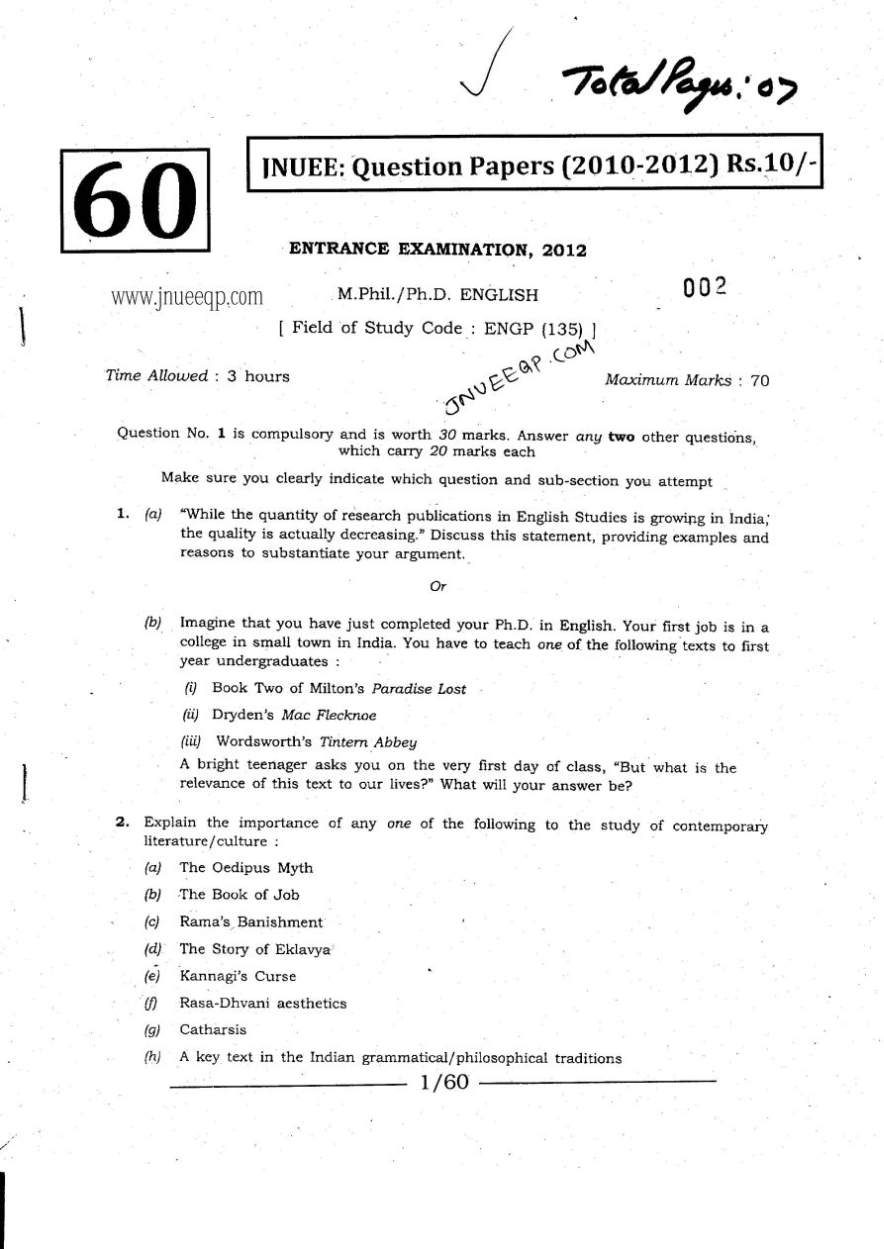 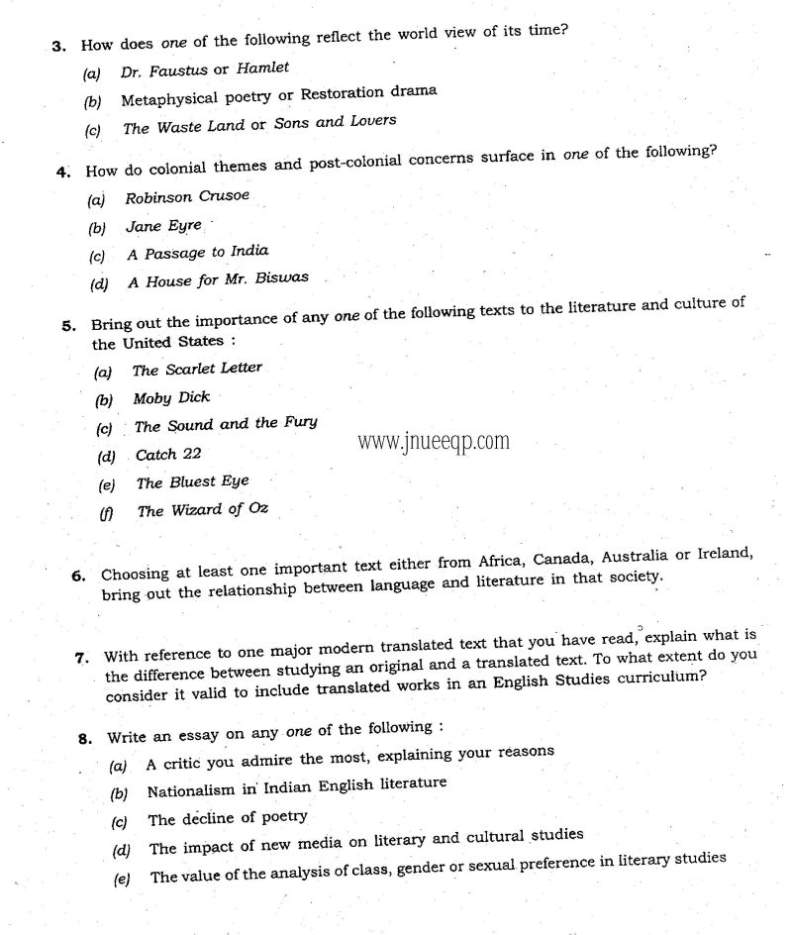 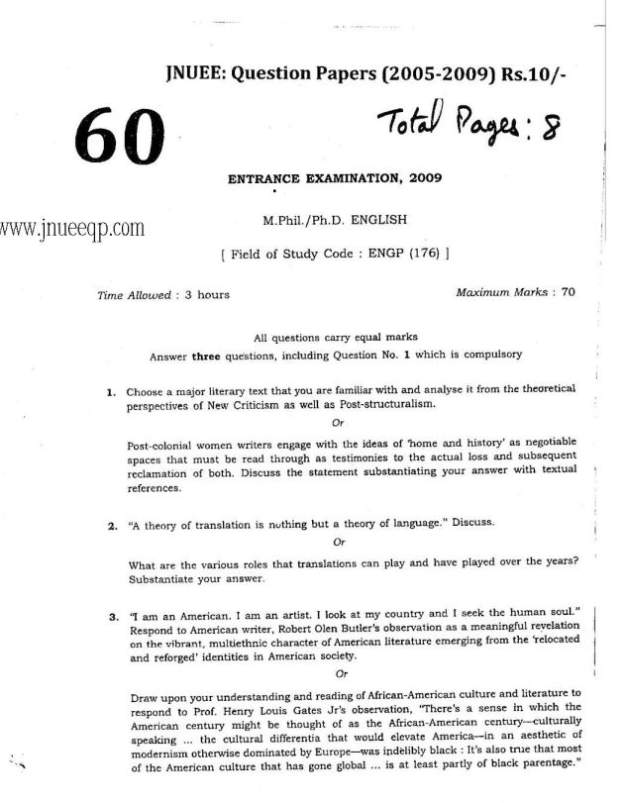 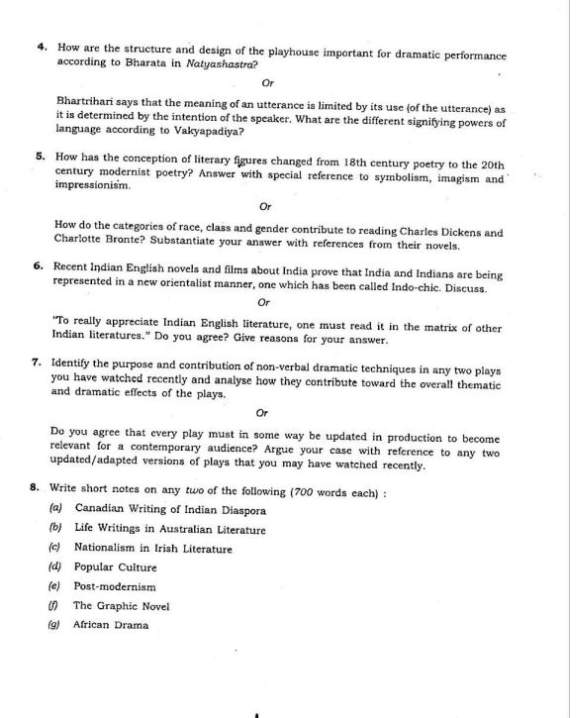 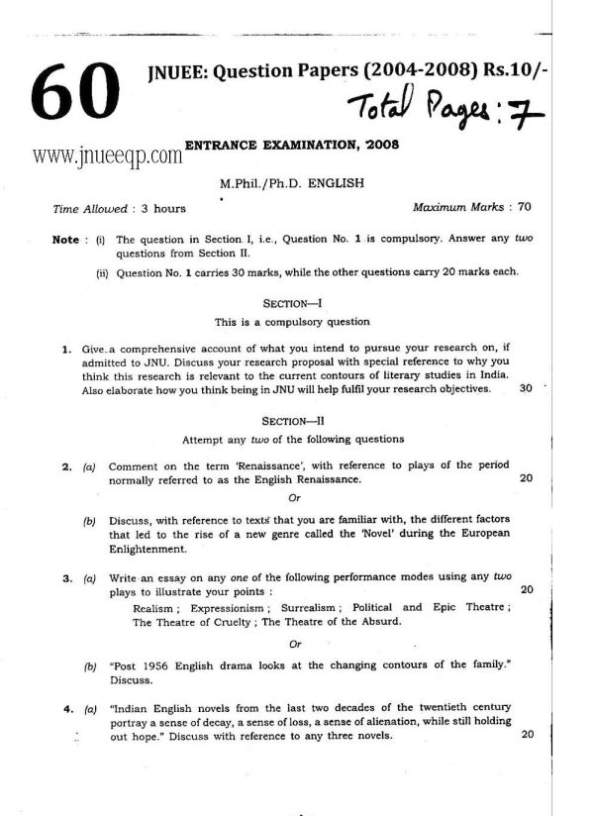 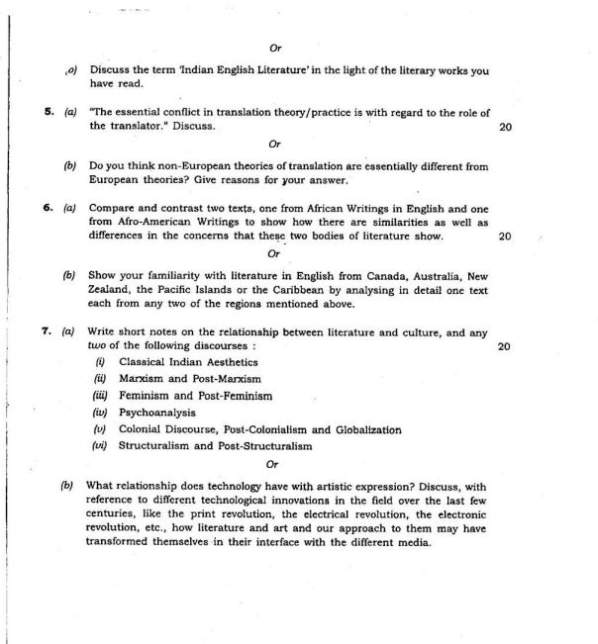 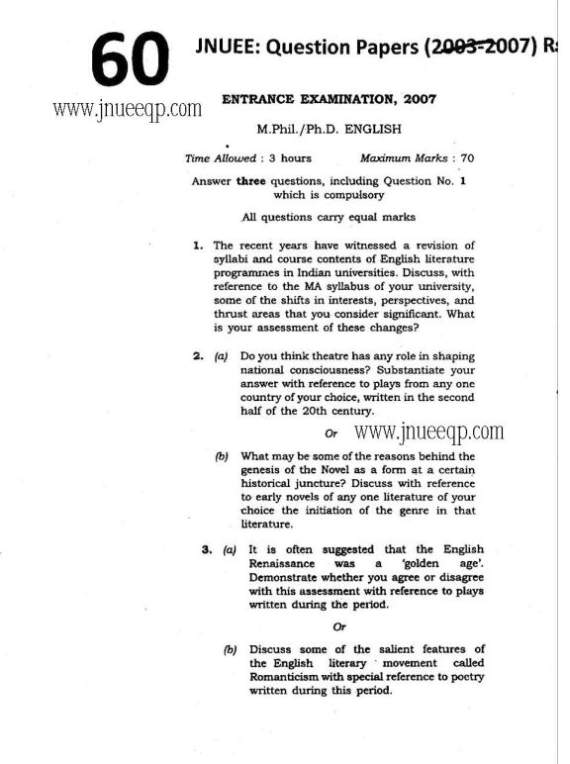  Literature in Other Englishes syllabus: History And Development of English Language Phonology and Syntax of English Structure of Contemporary English Current Theories of English Language Teaching English in Contact Language and Interpretation Socio-Linguistic Study of Literature Stylistics and Discourse Analysis English Writings in the Third World Indian English in Its Socio-Cultural & Historical Setting Teaching of English in India African Literature in English Contemporary Australian Literature Readings in American Literature African-American Literature |